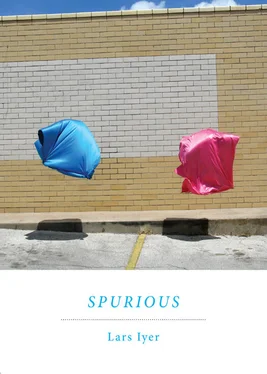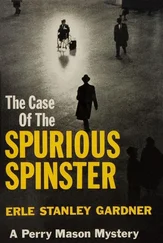Kneel and try to pray: that’s what moved Rosenzweig, W. says. It moved him immeasurably, because those words came from a scholar, a thinker like him, not a naïf or a romantic. Forget the argument about redemption and Christianity and world history, it was pathos that brought about Rosenzweig’s crisis, W. says. The pathos of a scholar who would live in faith and offer it as testimony.
Rosenzweig, of course, did not convert. Or rather, he converted back to Judaism. If he was to become Christian, he wrote to Rosenstock, it was to be by way of Judaism , W. says, even though his relationship to Judaism was weak. Even though his family was almost entirely assimilated.
But then a few days later, he attended the Yom Kippur service in an orthodox synagogue in Berlin. Up until that point, he felt one’s relationship to God depended upon the mediation of Christ. And after it? Read The Star , and you’ll see the Yom Kippur service is placed at the height of Rosenzweig’s account of Jewish religious experience. At the height! Pathos again, says W. It’s all about pathos.
Of course, there’s pathos and pathos, W. says. What could we understand of Rosenzweig’s despair after his conversation? How could we understand why he held a pistol to his temple, or what seeing the Nothing might mean?
Hadn’t our second leader spoken to us at length of his faith? Hadn’t we heard from his lips the testimony of one as far as possible from naivety or romanticism? But we were plunged into no crisis. We didn’t contemplate our own deaths, or no more than usual. What did we feel? Stirred, moved to be sure, but it didn’t translate into action.
Did we rush to a church and kneel and try to pray? Did we hold guns to our temples, or flail about in contemplation of the Nothing? Did we set about writing our own Stars of Redemption? Of course not. We fell short, says W., as we always fall short. But short of what? What idea could we have of faith, of the pathos of faith, as it streams infinitely far above our stupid heads?
‘How depressed are you?’, W. asks me on the phone. Very, I tell him. W.’s in his office in the southwest of the country, and I am in mine in the northeast. W. says he’s looking out of the window and thinking of his failure. How has it come to this? he thinks to himself over and over again.
Unopened parcels of review copies of books surround him, W. says. His office is thick with them. What can he do? I am the only person who would be interested in such books, W. says. They sicken him. They’re like the ballast attached to a body to make sure it sinks, he says. And he is sinking.
It’s different for me, W. acknowledges. I get some satisfaction from office work. It makes me think I’ve done something with my miserable life. It makes me feel my life is justified. W. can’t bear it, though. Why does he go into work, then? What’s the point? He could take a few days leave. But W. feels something significant might happen in the office at any moment. He has to be there, W. says. Why? What will happen? He doesn’t know, says W. Something momentous.
We’re bottom feeders, W. says as he often does. We live on scraps. Soon there will be nothing for us, and then what? Well, the apocalypse will decide it all. It’s coming, we agree. Our second leader told us so. In eight years time, wasn’t it? W. asks. Four years, I tell him. He’s revised his estimate. — ‘Four years’, says W. ‘How will we survive until then? What will we do?’ W. will be waiting in his office, the rain falling.
W. is still lost in Cohen, he says on the phone. What’s it all about? He could be reading in Dutch for all he knows. Nevertheless, he sends me some notes for my edification, he says. This is what real scholarship is all about, he says.
I read. Not the apparatus of knowledge itself, but in its outcomes, Ergebnis. Namely, science . And a little later, Unlike all the other fundamental concepts of Erkenntnistheorie, the concept of the infinitesimal does not have its roots in ancient thought .
I’m impressed, I tell W. — ‘You’re always impressed!’, W. says. ‘Anything could impress you, monkey boy’.
W. says he can only stand reading Cohen for two hours a day. Two hours, from dawn to six A.M, then up for breakfast and into the office. He never understands a word, not really.
W.’s come to the chapter on conic sections, he says. Do you know what a conic section is? he asks me. It’s a transverse section through a cone, I tell him. It’s something to do with Kepler. Now it’s W.’s turn to be impressed. I have odd corners of knowledge, he says. Like the German for badger, for example — what was it? Der Dachs , I told him, that’s why you get dachshunds.
Anyway, W. says, there are three types of conic section: hyperbolic, parabolic and the other one — it isn’t anything -bolic , it’s just normal. — ‘I think that’s what it’s called: normal’, W. says. ‘Anyway, which one are you: hyperbolic or parabolic? Do you view yourself as a hyperbolic man or a parabolic man?’
Sometimes, W. dreams we will become mathematical thinkers, I the philosopher of infinitesimal calculus, he the philosopher of conic sections.
Mathematics is the organon, says W. pedagogically. Do you know what organon means? He didn’t know himself, W. says. It comes from Aristotle, and refers to an overall conceptual system — the categories and so on.
W. is growing increasingly certain that the route to religion is a mathematical one. Maths, that’s what it’s all about. Take Cohen, for example. And Rosenzweig. Of course no one can understand Rosenzweig on mathematics and religion, W. says.
For his part, W.’s been reading his Hebrew Bible again, and wondering how to mathematise it. He’s quite serious, he says. He is currently in an email exchange on the topic with one of his cleverer friends, he says.
The infinitesimally small is not a concept of thought, but of science, and the science of magnitudes, Groessen. But does not the idea of magnitude presuppose intuition? Thus there appears to be a contradiction between thought and intuition. How can the infinitesimal be a magnitude and at the same time not an intuition?
W. says he’s since discovered that Groessen , in the last paragraph, can also be translated dimension . He’s not sure what the implications of that might be, though.
Has he had a thought over the weekend? I ask W. No, he says, not one. He never thinks when he’s with me. But I think sometimes, W. notes, sometimes I’m capable of thought. There’s sometimes a parting of the clouds, it’s amazing. For a few minutes, I make sense, I speak clearly and thoughtfully, and everyone is amazed. Sal was impressed at Oxford, says W., remembering our conversation in the beer garden. Ah yes, the beer garden, I say, a moment of illumination.
The problem is that I fear time, W. has decided. I have no stretches of empty time in my day. W., by contrast, always allows for empty time in his day. When he eats, he eats, he doesn’t work. When I eat, by contrast, it is in front of the computer screen, crumbs dropping between the keys. — ‘What time do you get up?’, says W., wanting to be taken through my work day. At six o’clock, I tell him. He gets up at four , he says, sometimes earlier. I got up at five yesterday, I tell him. — ‘And what did you do?’ I wrote, I tell him. — ‘But did you think?’ , W. asks. ‘You can’t think and write’.
Yes, my problem is that I fear empty time, W. is sure of it. Does he fear it? No, he says, but then his house is nicer than my flat. And his living room walls aren’t pink. — ‘What were you thinking when you painted those walls?’ It was to bring out the colour of the wood, I tell him. Pink, though! Why pink? It would depress him, says W.
Читать дальше












